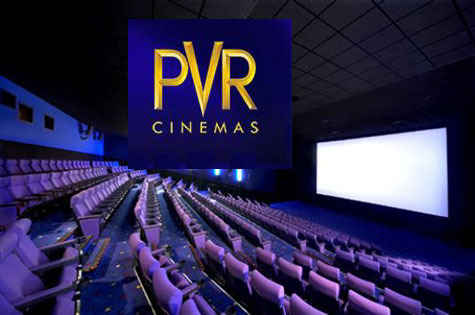The Madras high court today (15th October) gave a major relief to PVR chain of multiplexes in a case of online booking charges (or internet handling charges) being included for imposition of entertainment tax. It held that it is a separate service which is not uniformly charged for from all cine goers as mandatory payment for entertainment, and hence is not liable for imposition of entertainment tax.
It held that it is a separate service which is not uniformly charged for from all cine goers as mandatory payment for entertainment, and hence is not liable for imposition of entertainment tax.
Although entertainment tax has now been subsumed into GST, the case of PVR (earlier SPI Cinemas Pvt. Ltd.) relates to assessment years 2007-08 to 2014-15. The high court bench of Justices Vineet Kothari and M.S. Ramesh quashed the reassessment orders for all the years. The bench allowed the writ appeals filed by the assessee (PVR) by setting aside the order of the single judge, dated 28th February, 2020.
In the assessment order passed by the assessing authority in the present case on 21st September, 2015, the assessing officer himself has taken note of the letter dated 19th June, 2015 of the assessee that levy of Service Tax and Entertainment Tax on online ticket booking charges are mutually exclusive but as the assessee has not paid Service Tax for online ticket booking charges, therefore he is liable to pay Entertainment Tax on charges collected for online booking. From para 24 of Written Submissions of assessee, it is clear that assessee has paid Service Tax under Finance Act, 1994 on such ‘online booking charge’ for the period from 01-07-2012. The Assessing Authority has also dealt with the definition of Section 3(7)(c) of the Act and has emphasised the words “any payment for any purpose in addition to the payment for admission to the entertainment”. The said reassessment order was passed exercising the powers under Section 7(2) of the Act 1939, and the assessing authority not only imposed tax at the rate of 30% on the online booking charges to the extent of Rs. 41,96,277 but also imposed penalty @ 150% under Section 7(3) of the Act to the extent of Rs. 62,94,416 vide assessment order dated 21st September, 2015, for assessment year 2010-11.
As per the order: “In the case before the Madras high court, the test for levy of Entertainment Tax is the entry into the entertainment and payment for that purpose. Entertainment Tax was a State subject and before the said levy of Entertainment Tax being subsumed under the GST Laws enforced in the country with effect from 1st July, 2017, was the payment for admission, which as per the definition given in the Tamil Nadu Entertainment Tax Act, 1939, as amended from time to time in Section 3(7)(c) of the Act is that the payment should be necessary condition to be complied with for gaining entry into the place for entertainment. The payment made for any other purpose connected with such entertainment will be taxable under the said Act, only if the person concerned is required to make such payment as a condition for entry. Obviously, the online booking charges or internet handling charges, as the name given by some other cinema theatre owners is not a mandatory payment for gaining entry into the cinema hall. It is an additional payment for extra or other facility provided by the cinema hall owner. With the advent of internet, much after the said enactment of 1939, even though amended from time to time, the said Act could not have provided for levy of tax on the service of internet provided by the cinema owner. The same could be a subject matter of levy of Service Tax by the Parliament in the erstwhile law regime, prior to GST, with effect from 1st July, 2017. But the Entertainment Tax being a tax collected by State for the Local Administration or Municipal Administration, is leviable only on cost of ticket which entitles a person to gain entry into the cinema hall or theatre.
The payment made for any other purpose connected with such entertainment will be taxable under the said Act, only if the person concerned is required to make such payment as a condition for entry.
“Therefore, there is considerable force in the submission made by Mr. Easwar, learned Senior counsel appearing on behalf of the assessee. Unless such internet charges or online booking charges are uniformly charged from all the customers for having entry into the cinema hall, such extra service charges taken by the cinema owner to the extent of Rs.30 per ticket could not be made subject matter of Entertainment Tax. Even though such payment along with the cost of ticket at the rate of Rs. 190.78 in particular illustration, was part of the overall cost to the customer. The test is attending the entertainment or continuing to attend the entertainment. The mandatory requirement to fall within Section 3(7)(c) of the Act is that a person is required to make, as a condition to attend or continue to attend the entertainment. There is no doubt that booking of a cinema ticket on online basis is not a mandatory condition for all cinema goers, and this is not only optional but altogether a separate facility provided to all on the Web portal of the cinema hall owners. Therefore, the words in the clause 3(7)(c) of the Act, “any payment for any purpose whatsoever connected with an entertainment”, in addition to the payment for any for admission to entertainment in clause “(c)”, will have to be read in conjunction and not without the context of the words, “which a person is required (mandatorily) to make as a condition of attending or continuing to attend the entertainment”. These words are not superfluous or without meaning and in fact, they provide the bedrock condition for applying Section 3(7)(c) of the Act. Unless such a conditional payment for any purpose, integrally connected with the “entertainment”, is uniformly and mandatorily chargeable from all, who want to have entry in the place of cinema hall, in our opinion, Section 3(7)(c) cannot cover such payment made by the customer, for availing the facility of online booking of tickets.”






























